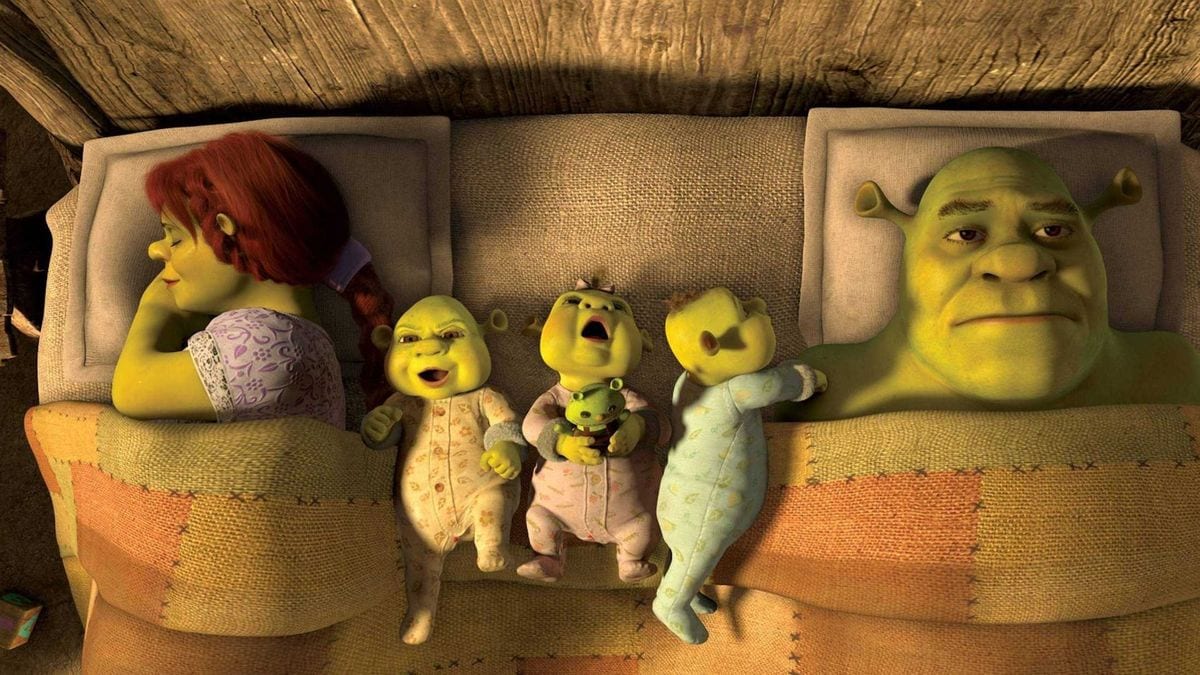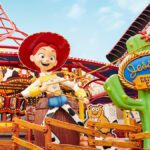REVIEW: Shrek Forever After (2010)
"You know what the best part of today was? I got the chance to fall in love with you all over again."
In 2010, DreamWorks Animation completed the main Shrek film series with its fourth installment, Shrek Forever After. Shrek the Third is the only Shrek film I saw in the theater;, I saw Shrek Forever After by chance when my grandmother got us the DVD. I didn’t like the movie much, but it was still leaps and bounds ahead of the dismal Shrek the Third. Shrek Forever After felt like an unnecessary addition to a series that only had one truly great film. I also thought the story was way too much like It’s a Wonderful Life, a movie that would be nigh impossible to replicate or equal. As I’ve mentioned before, though, I was firmly anti-DreamWorks at this point. I hated the Shrek movies in particular, except for Shrek 2, so I wasn’t going into Shrek Forever After with a good mindset. I remember hoping Toy Story 3 would beat it financially and critically, both of which happened. I haven’t seen Shrek Forever After in a decade, and I’d like to give it another chance. Let’s have a look.
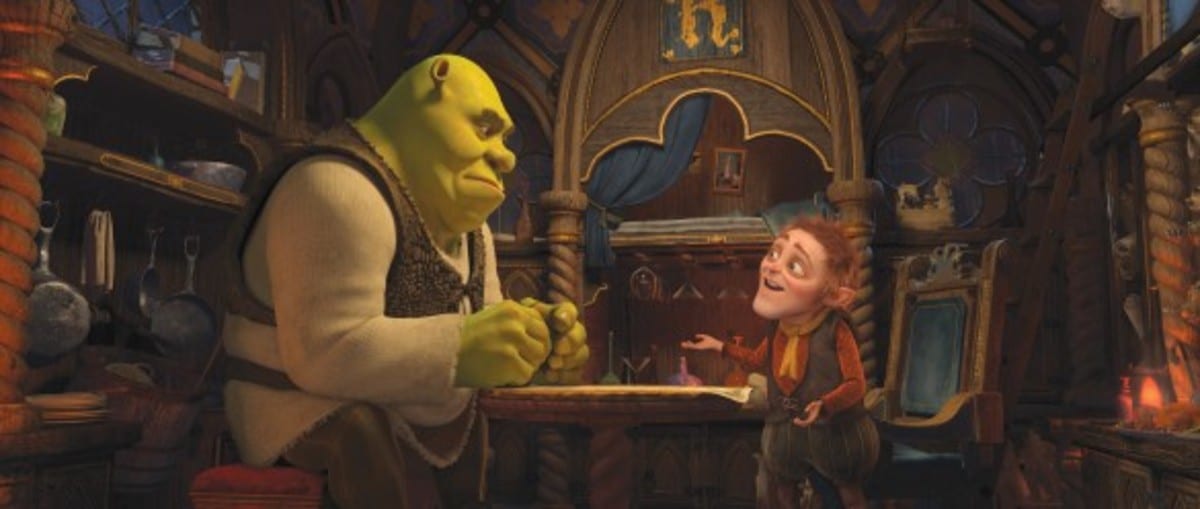
Following the birth of the triplets in Shrek the Third, Shrek has a seemingly perfect life. He’s got a loving wife, three adorable kids, and the best friends he could ask for. Everyone loves him now, even the villagers who once hunted and feared him. But soon, the mundane nature of Shrek’s life begins to grow old. He gets increasingly annoyed with the situation and longs for the old days when he was a force to be reckoned with. This comes to a head at the babies’ birthday party, where Shrek makes a big scene. Afterwards, rather than apologizing or explaining himself, Shrek wishes he had his old life. He even snaps at Fiona, telling her he wishes he never saved her from the tower. Shrek storms out and encounters Rumpelstiltskin, who has an offer that would let Shrek live his old life for one day. Shrek agrees to the deal, giving up one day from his past. What he doesn’t know is that Rumple has a grudge against him, and the day he traded wasn’t just any day.
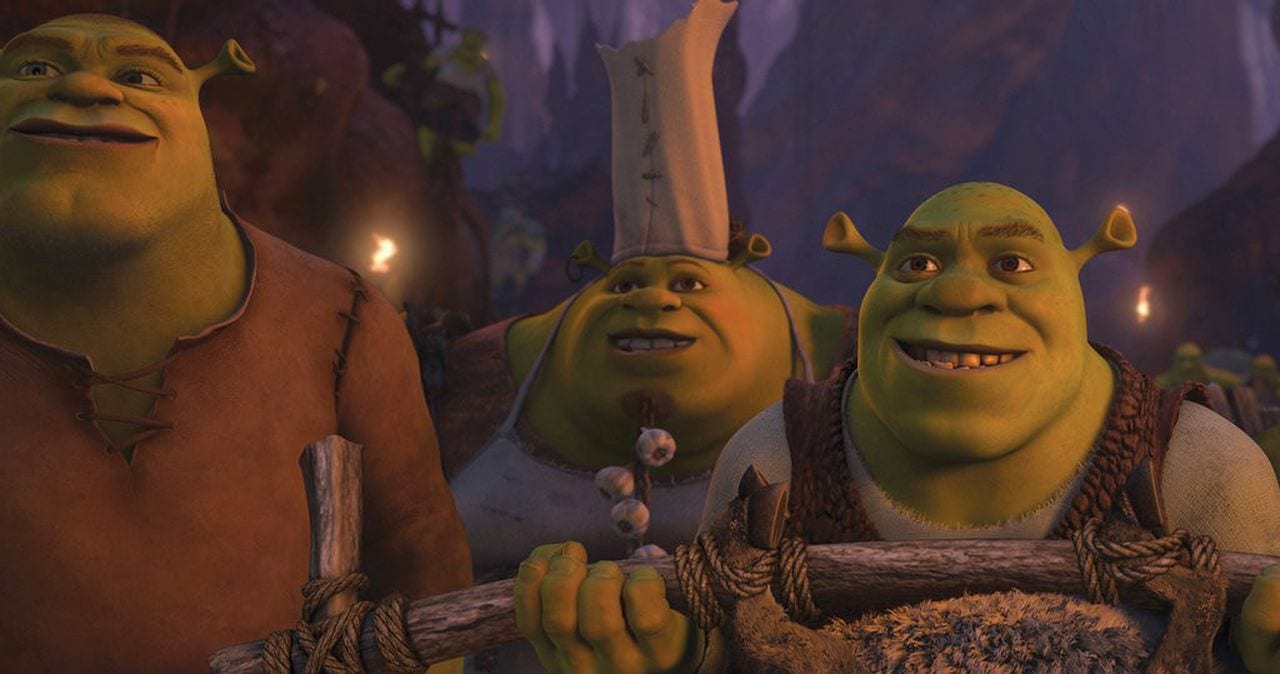
There’s a lot to like about Shrek Forever After. It shares similarities with It’s a Wonderful Life, as Shrek gets to see what life would be like without him. But this film is by no means a straight remake of It’s a Wonderful Life with Shrek as the protagonist. Shrek wishes he could re-experience what his life used to be like, but he doesn’t (intentionally) wish himself out of existence. However, like George Bailey, Shrek has grown to take the friends he’s made for granted and wishes his life had proceeded differently. I remember when I first saw Shrek Forever After, I thought this was out of character. Shrek is a huge jerk in the first movie, but he got a lot better after that. I found it difficult to accept that he would even consider a life without Fiona and the babies. However, I kind of get it now. It still seems unreasonable to have a mostly happy life with friends and family, and long for the old days where nobody liked you, but I think I get it. We tend to romanticize bygone days in our minds, only remembering good things about the past and hyper-focusing on bad things about the present. Most people do this to a degree, though, of course, it depends on the situation and the individual. It’s understandable that Shrek gets tired of the monotony of caring for the babies and people constantly being in his face, though, and our feelings aren’t usually reasonable. It’s still pretty wild that he yells at Fiona about this and tells her he wishes he never rescued her from the tower. But this has to happen to justify what follows, and it’s worth it for the payoff. This rewatch really shocked me, and now Shrek Forever After is my second favorite movie in the series. Walt Dohrn is actually pretty funny as Rumplestiltskin, even if he does remind me of Syndrome… especially at one point when he wears a pointy, red wig. The way they retcon him into the story to justify his grudge against Shrek is a little forced, but it’s not too distracting. Donkey and Puss in Boots still crack wise occasionally, but Rumplestiltskin is the primary source of comedy in Shrek Forever After, which is actually pretty interesting. Farquaad and the Fairy Godmother had some funny quips, but it wasn’t the main facet of their personalities. And the less we say about Prince Charming in Shrek the Third, the better. Shrek has to find Donkey in the new world created by Rumple, and they re-establish their friendship in a new way. This is a nice scene, and it’s hilarious when Shrek discovers what’s become of Puss. But the bulk of the movie is spent on Shrek realizing what he’s done to Fiona in making this deal and trying to make it right.
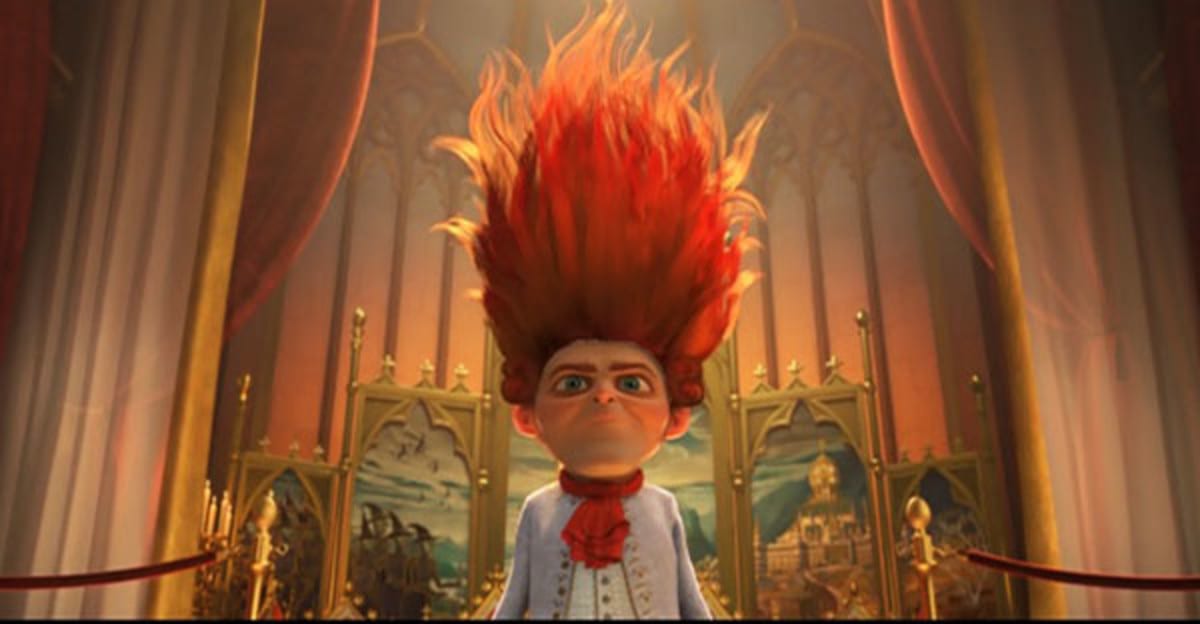
This is the movie where Fiona gets to shine the most since the first film, and maybe even more than there. It’s hinted at early on when Shrek throws his fit at the party, and she asks him directly if he means he regrets saving her from the tower. But Fiona’s backstory gets more intense later in the film, mainly because this is the first movie to take it seriously and explore the consequences living alone in a tower would have on a person. Fiona’s childhood imprisonment has always been used as a plot device or even a joke before, but in Shrek Forever After, it’s the genesis of unresolved trauma and bitterness at the world. Based on what Shrek says to prove he knows her, we know that in the “real” world, Fiona sleeps by candlelight because she’s afraid of waking up back in the tower. But in the timeline where Shrek didn’t exist to save her, Fiona was fundamentally changed. Because her optimism and faith in true love were never rewarded, she broke herself out of the tower and became the leader of a band of rebel ogres. This is influenced by Rumplestiltskin’s standing as King, of course. Since Shrek wasn’t there to save Fiona, her parents signed away their kingdom to save Fiona from her curse in a deal with Rumple. This creates something of a plot hole, as the contracts are binding, but Fiona remains cursed until the end, but I digress. The way Shrek and Fiona bond in this movie is very sweet. I find their developing relationship more convincing than their relationship in the first movie. The scene where they practice fighting says a lot in only a couple of moments. You can see in Shrek’s eyes how much he loves Fiona, and it’s the first time this hardened version of Fiona shows any genuine care for Shrek. I also love the scene where Shrek tells Fiona that he’s the true love she’s been waiting for, and she asks where he was when she needed help. That cuts deep. This version of Fiona seems stronger, wearing battle gear and leading a tribe of ogres in the fight against Rumplestiltskin. But she’s also vulnerable in ways the “real” one wasn’t, unable to trust, love, or even give people the benefit of the doubt. This Fiona is traumatized and hardened by the fact that nobody cared enough to come for her. I never thought I’d care this much about Fiona or really even find her interesting. She rubbed me the wrong way in Shrek and wasn’t in Shrek 2 or Shrek the Third all that much. But her story and the way Shrek has to win her over again is the best part of the movie, and to me, more than justifies its existence. I wish we could have seen more of the King and Queen in this movie, but I also understand that’s not what the film is about.
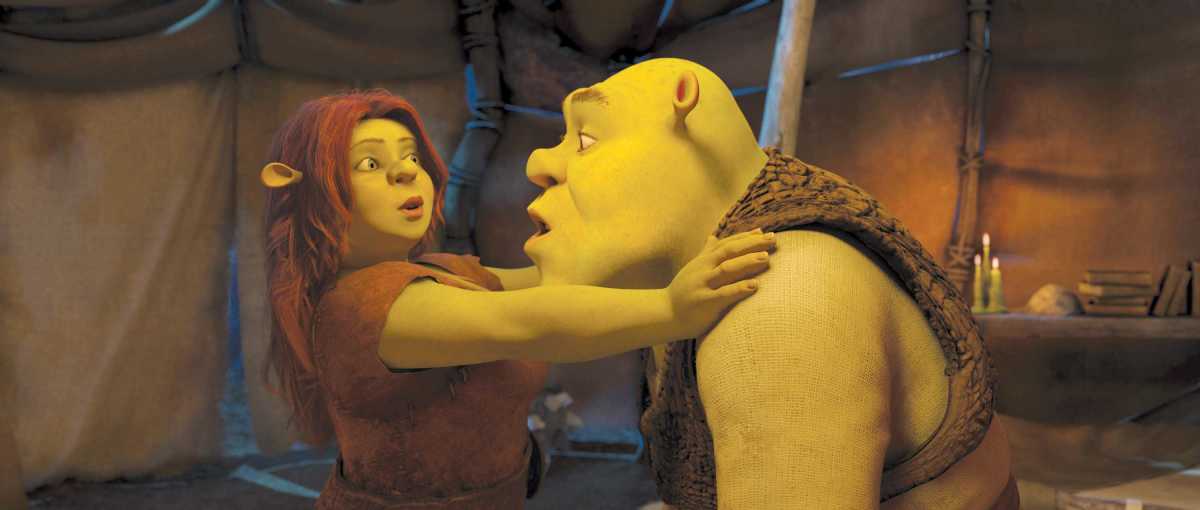
The animation in Shrek Forever After is the best in the series, unsurprisingly, since it is the most recent movie. The jokes are far better than anything in Shrek the Third, and the first, too, for the most part. This is Cameron Diaz’s best performance in the series, which is also unsurprising since Fiona actually has a character arc in Shrek Forever After. The difference isn’t as apparent with some of the other characters, but all of the vocal performances are improved here over Shrek the Third. I also find it kind of funny that Shrek Forever After ignores the story and characters of Shrek the Third; we never see Artie, and the King’s death isn’t mentioned. They knew what they did with the Third and ignored it, which is good. The film’s original score by Harry Gregson-Williams is quite good, and I really like the song choices. In particular, “For Once in My Life” by Stevie Wonder plays over the credits as we see imagery from the earlier movies in the series. This song fits so well with the story, and it does feel nostalgic seeing all the callbacks, even as someone who only likes half of the movies.
Overall, Shrek Forever After was a pleasant surprise after all this time. It has a lot more to offer to the overall story than I remembered and makes a much better ending to the series than the turd would have.
Shrek Forever After (2010)
Plot - 7
Acting - 8.5
Direction/Editing - 8
Music/Sound - 9
Animation - 9
8.3
Good
Shrek Forever After was a pleasant surprise after all this time. It has a lot more to offer to the overall story than I remembered and makes a much better ending to the series than the turd would have.

